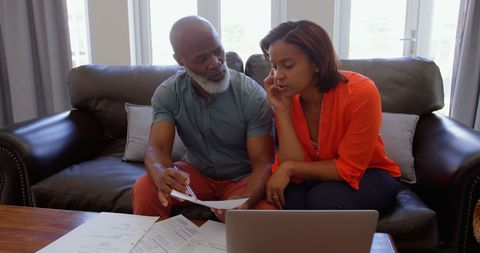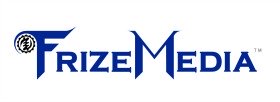Reverse Mortgage

What Is A Reverse Mortgage?
Why Is It Called a Reverse Mortgage?
A reverse mortgage is a unique type of loan designed for homeowners aged 62 or older, allowing them to convert part of their home equity into cash without having to sell their property.
But why is it called a reverse mortgage?
The name comes from the way payments work, unlike a traditional mortgage where the homeowner makes monthly payments to the lender, a reverse mortgage flips this arrangement.
How a Reverse Mortgage Works (In Reverse)
In a traditional mortgage:
- The borrower receives a lump sum to buy a home.
- They make monthly payments (principal + interest) to the lender over time.
In a reverse mortgage:
- The lender pays the homeowner (via lump sum, monthly installments, or a line of credit).
- The homeowner does not make monthly mortgage payments.
- The loan balance grows over time as interest and fees accumulate.
- Repayment is deferred until the homeowner sells the home, moves out permanently, or passes away.
This "reverse" payment structure is why it’s called a reverse mortgage.
Key Benefits of a Reverse Mortgage
1. No Monthly Mortgage Payments Required
- The borrower is not required to make payments as long as they live in the home, maintaining property taxes, insurance, and upkeep.
2. Tax-Free Cash Flow
- Funds received are typically not considered taxable income, providing financial flexibility.
3. Retain Homeownership
- The borrower keeps the title to the home and can stay in it for life, as long as loan obligations are met.
4. Flexible Payout Options
- Homeowners can choose how they receive funds:
- Lump sum
- Monthly payments
- Line of credit (which grows over time)
- A combination of these

5. Non-Recourse Loan Protection
- The loan is secured by the home’s equity, meaning the borrower (or their heirs) will never owe more than the home’s value when repaid.
When Does the Reverse Mortgage Need to Be Repaid?
The loan becomes due when:
- The homeowner sells the home.
- The last surviving borrower (or eligible non-borrowing spouse) permanently moves out (e.g., into assisted living).
- The homeowner passes away (heirs can sell the home or refinance to repay the loan).
- The borrower fails to meet loan obligations (such as maintaining the home or paying property taxes).
Is a Reverse Mortgage Right for You?
While a reverse mortgage can provide financial relief for retirees, it’s important to consider:
- Accruing Interest: The loan balance increases over time, reducing home equity.
- Fees & Costs: Closing costs and mortgage insurance premiums apply.
- Impact on Heirs: The home may need to be sold to repay the loan.
Conclusion
The term "reverse mortgage" reflects the flipped payment structure—instead of the homeowner paying the lender, the lender pays the homeowner. This financial tool helps seniors access home equity while continuing to live in their homes, offering flexibility and security in retirement. However, careful consideration and consultation with a financial advisor are recommended before proceeding.

What Is The Advantage Of A Reverse Mortgage
A reverse mortgage is a kind of equity release or lifetime mortgage available in the United States under a Federal program administered by HUD. It enables homeowners who are eligible to access a portion of their equity. For senior citizens above 62 years, lenders offer instant cash without any monthly payments. This allows the pensioners with a home, but no cash, to get easy financing to meet their daily needs or for any other purposes. This allows them to convert their equity tied up in their home into cash.
What are the advantages and risks of this type of mortgage? This mortgage allows you to reside in your own home. You get monthly income which will help you maintain a comfortable standard of living. The money generated is non-taxable since it is a loan and not income. In the short term, the advantages seem to be very attractive but in the long term the risks far outweigh the benefits. Unlike a conventional mortgage, in reverse mortgages the lender pays you money based on the equity in the home. But in return the lender imposes strict conditions on you. You get the mortgage only on the primary residence.
So if there is another home where you do not reside, you will not get the mortgage. If you die, sell home or change your main residence, you need to pay back the loan along with the accrued interest. To do that, you will have to sell off the home. Also, this mortgage can erode the accumulated equity in the house rapidly. Besides, if you want to leave the house as an inheritance, you will not be able to do so.
How much mortgage will I get? You can get any amount between 10 to 40% of the value of home obtained after appraisal. It is directly dependent on your age, the present rate of interest and the value of the property. You can get free online reverse mortgage quotes through the internet. There are lots of reverse mortgage websites, which would be useful to you.

The homeowners are able to draw the mortgage principal in a lump sum, by receiving monthly payments over a specified term or over their (joint) lifetimes, as a revolving line of credit, or some combination thereof. Regarding a conventional mortgage, the homeowner makes a monthly amortized payment to the lender; after each payment the equity increases by the amount of the principal incorporated in the payment, the property is released from the mortgage when the mortgage has been paid in full. However,in a reverse mortgage, the home owner is under no obligation to make payments, but is free to do so with no pre-payment penalties. The line of credit portion operates like a revolving credit line, so a payment in reduction of a line of credit, increases the available credit by the same amount. Interest that accrues is added to the mortgage balance.
Title to the property remains in the name of the homeowners, to be disposed of as they wish, encumbered only by the amount owing under the mortgage. If a property has increased in value after a reverse mortgage is taken out, it is possible to acquire a second (or third) reverse mortgage over the increased equity in the home in some areas. However most lenders do not appreciate taking a second or third lien position behind a reverse mortgage for the simple reason that its balance increases with time.
We Are Helping 1000 Businesses Amplify Their Online Presence
One hardly finds reverse mortgages with subordinate liens behind them as a result. A reverse mortgage may be refinanced if enough equity is present in the home, and in some cases may qualify for a streamline refinance if the interest rate is reduced. A reverse mortgage lien is often recorded at a higher dollar amount than the amount of money actually disbursed at the loan closing. The recorded lien works in similar fashion to a home equity line of credit where the lien represents the maximum lending limit, but the payoff is calculated based on actual disbursements plus interest owing.

It is important to note that the homeowner must ensure that taxes and insurance are kept current at all times. If either taxes or insurance lapse, it could result in a default on the reverse mortgage. Once the reverse mortgage is established, there are no restrictions on how the funds are used. In addition to the tenure monthly payments, the borrower has the option of moving the entire amount of money into investments, or they can simply take the money and spend it as they wish.
Can you lose your home with a reverse mortgage? The answer is yes, you can lose your home with a reverse mortgage. However, there are only specific situations where this may occur: You no longer live in your home as your primary residence. You move or sell your home.
What is the point of a reverse mortgage? A reverse mortgage is a loan that allows homeowners over the age of 62 to convert a portion of their home equity into cash. This type of loan is especially appealing to people who want, or need, to supplement their retirement funds.
Is reverse mortgage a ripoff? All in all, reverse mortgage scams are intended to steal a homeowner's equity, leaving them with little left in the home and potentially putting them in danger of losing the property. Reverse mortgages are complex loans, making them the perfect product for a scam.
Why a reverse mortgage is a bad idea? Reverse mortgage proceeds may not be enough to cover property taxes, homeowner insurance premiums, and home maintenance costs. Failure to stay current in any of these areas may cause lenders to call the reverse mortgage due, potentially resulting in the loss of one's home.
What is the downside of a reverse mortgage? The downside to a reverse mortgage loan is that you are using your home's equity while you are alive. After you pass, your heirs will receive less of an inheritance. Another possible downside would be regrets by taking a reverse mortgage too early in your retirement years.
How long can you live in your house with a reverse mortgage? In the HECM program, a borrower generally can live in a nursing home or other medical facility for up to 12 consecutive months before the loan must be repaid. Taxes and insurance still must be paid on the loan, and your home must be maintained. With HECMs, there is a limit on how much you can take out the first year.
What is the HECM program? The Home Equity Conversion Mortgage (HECM) is Federal Housing Administration's (FHA) reverse mortgage program which enables you to withdraw some of the equity in your home. You choose how you want to withdraw your funds, whether in a fixed monthly amount or a line of credit or a combination of both.
What is the difference between a HECM mortgage and a reverse mortgage? A home equity conversion mortgage (HECM) is a type of reverse mortgage that is Federal Housing Administration (FHA) insured. HECM terms are often better than those of private reverse mortgages, but the loan amount is fixed, and mortgage insurance premiums are required.

How does an HECM work? What Is a HECM Reverse Mortgage? It is a loan to a senior secured by a mortgage lien on the senior's house, with most of the loan proceeds usually paid out over time rather than upfront, and with no repayment obligation so long as the senior lives in the house.
Who qualifies for a HECM? 62 years old. All borrowers on the home's title must be at least 62 years old. The older you are, the more funds you can receive from a Home Equity Conversion Mortgage (HECM) reverse mortgage. You must live in your home as your primary residence for the life of the reverse mortgage.
What happens at the end of a reverse mortgage? FHA reverse mortgages come to an end in one of three ways. You can elect to pay it back; you can sell your home and pay it off; or when you die, the home is sold and the loan is paid off. Unlike conventional loans, you don't owe anything until you die or sell the home.
How does a reverse mortgage get paid back? The most common method of repayment is by selling the home, where proceeds from the sale are then used to repay the reverse mortgage loan in full. Either you or your heirs would typically take responsibility for the transaction and receive any remaining equity in the home after the reverse mortgage loan is repaid.
What does AARP think of reverse mortgages? Does AARP recommend reverse mortgages? AARP does not recommend for or against reverse mortgages. They do however recommend that borrowers take the time to become educated so that borrowers are doing what is right for their circumstances
Who owns your house when you have a reverse mortgage? When you take out a reverse mortgage loan, the title to your home remains with you. Most reverse mortgages are Home Equity Conversion Mortgages (HECMs). The Federal Housing Administration (FHA), a part of the Department of Housing and Urban Development (HUD), insures HECMs
Why do banks not recommend reverse mortgages? High fees. Reverse mortgages come with more regulations than a regular mortgage so that accounts for some of the additional fees. Lenders also charge more because they claim they take on unique risks, in that reverse mortgages aren't based on your income or credit score.
How long do heirs have to pay off a reverse mortgage? 30 days. Upon the death of the borrower and Eligible Non-Borrowing Spouse, the loan becomes due and payable. Your heirs have 30 days from receiving the due and payable notice from the lender to buy the home, sell the home, or turn the home over to the lender to satisfy the debt.
Does a reverse mortgage have to be owner occupied? In the same way borrowers applying for a new purchase or “forward” mortgage loan must occupy the home, a reverse mortgage requires you to live in the property as your primary residence. The top area of reverse mortgage fraud revolves around occupancy, so the goal here is to provide proof of residence in your home.
Do you have to pay a reverse mortgage back? Reverse mortgage loans typically must be repaid either when you move out of the home or when you die. However, the loan may need to be paid back sooner if the home is no longer your principal residence, you fail to pay your property taxes or homeowners insurance, or do not keep the home in good repair.

Who pays the interest on a reverse mortgage? Homeowner. The homeowner only pays interest on the amounts actually borrowed from the credit line. Equal monthly payments plus a line of credit: The lender provides steady monthly payments for as long as at least one borrower occupies the home as a principal residence.
How are monthly payments calculated on a reverse mortgage? For 20 years, Rs 80 lacs (Rs 1 crores – 20% margin) translates to 80X100=8,000 per month. Interest rate is important. If the interest rate is 11% (and not 12%), the monthly payment will be Rs 9,157 per month for 20 years. For 10 year loan, the monthly payment will be Rs 36,531.
What is the maximum amount of a reverse mortgage? $822,375 For the government-insured Home Equity Conversion Mortgage (HECM), the maximum reverse mortgage limit you can borrow against is $822,375 (Updated January 1st, 2021), even if your home is appraised at a higher value than that.
Who do I talk to about a reverse mortgage? To find a reverse mortgage counselor near you, search the HECM Counselor Roster or call (800) 569-4287. To find a reverse mortgage counselor that provides telephone and face-to-face counseling nationwide, use the HUD Intermediaries Providing HECM Counseling Nationwide list.
Are heirs responsible for reverse mortgage debt? Are heirs responsible for reverse mortgage debt? No, reverse mortgage heirs do not have to take on the remainder of the loan balance and are not held responsible for paying back the loan. If the loan balance is more than the appraised value of the home, heirs will not have to pay the difference.

What happens to a reverse mortgage when the borrower dies? A reverse mortgage must be paid off when the borrowers move out or die. Here are the options for paying off a reverse mortgage before or after the borrower's death. Sell the house and pay off the mortgage balance. Usually, borrowers or their heirs pay off the loan by selling the house securing the reverse mortgage
Does the bank own your house? Simply put, yes, you do own your home but your mortgage lender does have interest in the property based on documents signed at closing. Deed of Trust – this document lists the legal obligations and rights of you and the lender. It also states the lender's right to foreclose on the home if you default on the loan.
What are reverse mortgage alternatives?
- 5 Reverse Mortgage Alternatives
- Sell And Downsize Your Home.
- Refinance Your Current Mortgage.
- Take Out A Home Equity Line Of Credit (HELOC)
- Apply For A Home Equity Loan.
- Rent Your Space To Others.
What percentage of reverse mortgages end in foreclosure? HUD contends that 99 percent of foreclosures were part of the ending lifecycle of a reverse mortgage – the borrower dies or moves away, the heirs decide to give the property to the lender, and the lender starts foreclosure proceedings.
What happens if I inherit a house with a reverse mortgage? When a person with a reverse mortgage dies, the heirs can inherit the house. So, say the homeowner dies after receiving $150,000 of reverse mortgage funds. The heirs inherit the home subject to the $150,000 debt, plus any fees and interest that have accrued and will continue to accrue until the debt is paid off.
Bookmark Our Travel Platform .Don't Worry, It Will Open In A New Browser, Once You Close That Browser You Will Be Right Back Here.
Can a family member take over a reverse mortgage? Unfortunately, however, you can't add a family member to an existing reverse mortgage.
Does a reverse mortgage have to be primary residence? Do you have to live in the home with a reverse mortgage? Yes. One of the requirements of a reverse mortgage loan is that the property must be your primary residence.
How does a reverse mortgage affect your taxes? No, reverse mortgage payments aren't taxable. Reverse mortgage payments are considered loan proceeds and not income. The lender pays you, the borrower, loan proceeds (in a lump sum, a monthly advance, a line of credit, or a combination of all three) while you continue to live in your home.
How do you fight a reverse mortgage? The best way of getting out of a reverse mortgage is by repaying the loan balance in full. If you have a large balance that you are unable to pay in cash, the most common solution is to sell the home and use the proceeds to pay off the reverse mortgage.
How much equity is necessary for a reverse mortgage? The rule of thumb. In general, though, you should expect to have 50% equity or more in your home to get a reverse mortgage, especially through HECM. This is because you must use your HECM to pay off your existing home loan first. If you own less than 50%, the proceeds of your reverse mortgage won't cover that gap.
Can a mortgage company sue the heirs? By law, only the borrowers and co-borrowers on secured and unsecured loans are responsible for their repayment. When a mortgage borrower dies and no co-borrowers exist, the borrower's estate becomes responsible for its repayment, and next of kin can't be sued for repayment.
What is the difference between a cash-out refinance and a reverse mortgage? FHA cash-out refinance loans can be used to refinance any type of mortgage even if it's not an FHA loan. Unlike FHA cash-out refi loans, FHA reverse mortgages (also known as Home Equity Conversion Mortgages or FHA HECM Loans) are intended only for qualified borrowers aged 62 or older.
How long does it take to foreclose on a house with a reverse mortgage? The actual time it takes depends on the state in which the property is located but can take as little as 150 – 180 days in a Trust Deed state from filing to over a year in a judicial foreclosure state that must go through a court foreclosure.
What is a non-borrowing spouse on a reverse mortgage? An eligible non-borrowing spouse is an individual who is married to a reverse mortgage applicant at the time the loan closes (or the borrower declares is their married partner) who is not going to be a borrower of that loan but is living in the subject property as their primary residence.
Do you get a 1098 on a reverse mortgage? When reverse mortgage borrowers make payments, they're issued a 1098 statement, typically generated when a reverse mortgage loan is repaid partial or in full.
Do you pay capital gains on a reverse mortgage? You could owe capital gains taxes when you or a family member sells your home to pay off the reverse mortgage. If you're single, up to $250,000 of home appreciation is not taxable. If you're married, that doubles to $500,000. Even then, you're only paying taxes on the appreciation above that point.
How do I deduct interest on a reverse mortgage? Although you can't deduct interest on a reverse mortgage until you actually pay it, you can deduct the fees and costs of originating the loan. These include broker fees, document fees and "points" charged to you in return for a lower-than-market interest rate.
Does interest accrue on a reverse mortgage? Unlike a conventional mortgage, a reverse mortgage does not require monthly mortgage payments on the principal or interest. Instead, the interest charges are added to the loan balance on a monthly or yearly basis depending on the type of interest rate the borrower chooses (fixed vs. adjustable).
Is reverse mortgage interest deductible for the beneficiaries?Homeowner's estate: If the estate pays off the loan, the interest is deductible on the estate's income tax return. Beneficiary: If beneficiary(ies) who have inherited the house pay off the loan, they can deduct the interest on their personal tax return(s).
Can you write off interest on a cash-out refinance? You can deduct the full amount of interest you pay on your loan in the last year if you did a standard refinance on a primary or secondary residence. You can only deduct 100% of your interest if you take a cash-out refinance, particularly if you use the money for a capital home improvement.
Does a cash-out refinance hurt your credit? A cash-out refinance can affect your credit score in several ways, though most of them minor. Some of them are: Submitting an application for a cash-out refinance will trigger what's known as a hard inquiry when the lender checks your credit report. This will lead to a slight, but temporary, drop in your credit score.
InternetBusinessIdeas-Viralmarketing Home Page
Tweet
Follow @Charlesfrize









